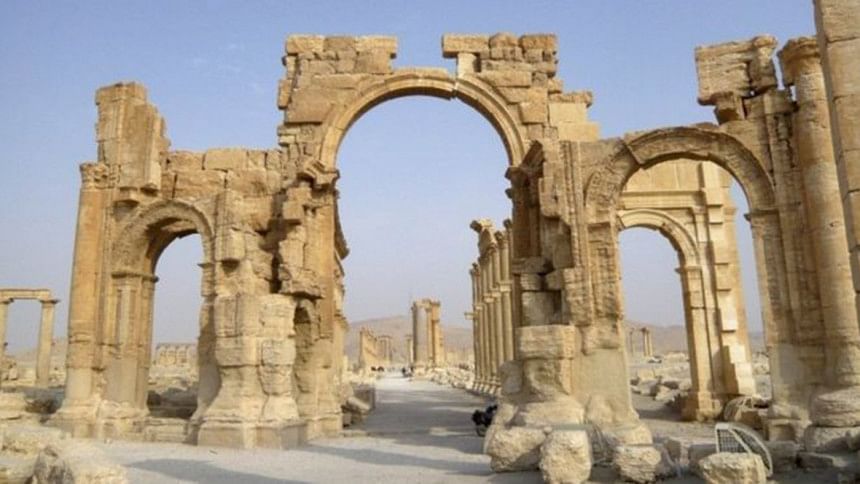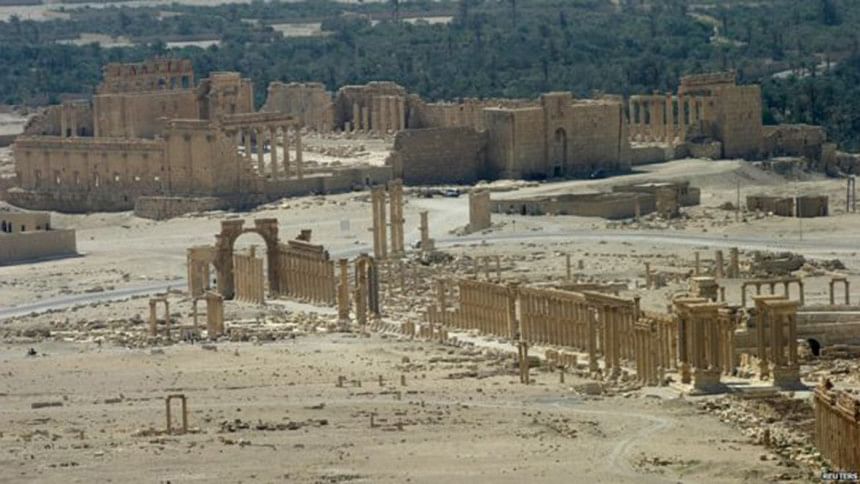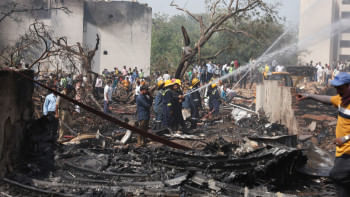Islamic State 'blows up Palmyra arch'

Islamic State militants in northern Syria have blown up another monument in the ancient city of Palmyra, officials and local sources say.
The Arch of Triumph was "pulverised" by the militants who control the city, a Palmyra activist told AFP news agency.
It is thought to have been built about 2,000 years ago.
IS fighters have already destroyed two ancient temples at the site, described by Unesco as one of the most important cultural centres of the ancient world.
"The Arch of Triumph was pulverised. IS has destroyed it," Mohammad Hassan al-Homsi, an activist from Palmyra told AFP today.
The London-based Syrian Observatory for Human Rights, an activist group monitoring the conflict, said sources on the ground had confirmed the destruction.
Syrian antiquities chief Maamoun Abdulkarim also confirmed the news, and told Reuters news agency that if IS remains in control of Palmyra, "the city is doomed".
ANCIENT CITY OF PALMYRA

-- Unesco World Heritage site
-- Site contains monumental ruins of great city, once one of the most important cultural centres of the ancient world
-- Art and architecture, from the 1st and 2nd Centuries, combine Greco-Roman techniques with local traditions and Persian influences
-- More than 1,000 columns, a Roman aqueduct and a formidable necropolis of more than 500 tombs made up the archaeological site
-- More than 150,000 tourists visited Palmyra every year before the Syrian conflict
Unesco's Director General Irina Bokova said the destruction constitutes a "war crime" and called on the international community to stand united against IS efforts to "deprive the Syrian people of its knowledge, its identity and history".
IS militants captured the historic site from Syrian government forces in May, and proceeded to destroy some of the temples and artefacts.
The group believes any shrines or statues implying the existence of another deity are sacrilege and idolatry, and should be destroyed.
In August, IS destroyed the ancient Temple of Baalshamin - one of the city's best-known buildings built nearly 2,000 years ago.
The group has also published photos of militants destroying what it said were artefacts looted at Palmyra.

 For all latest news, follow The Daily Star's Google News channel.
For all latest news, follow The Daily Star's Google News channel. 



Comments